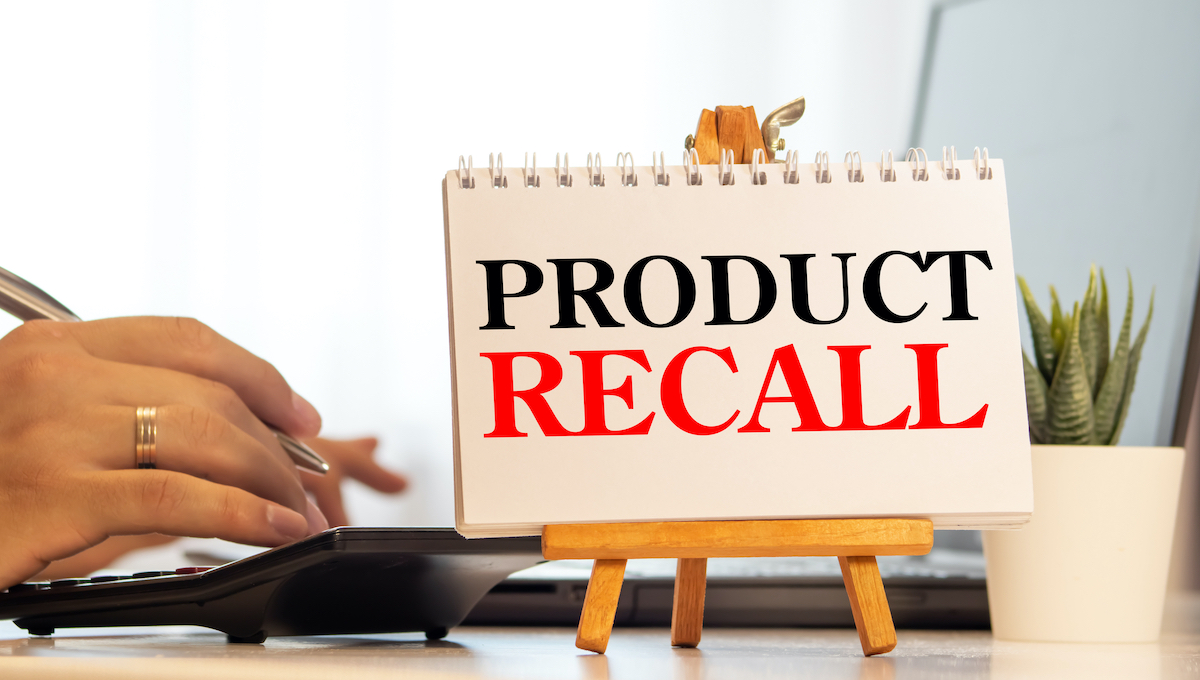Federal officials have identified specific stores that sold recalled frozen, raw breaded chicken products. The products are associated with a Salmonella outbreak.
At least 28 people across eight states have been confirmed infected in the Salmonella outbreak, according to information from the Centers for Disease Control and infection. Eleven patients have been so sick that they were admitted to hospitals. No one has died.
A variety of raw, frozen, breaded chicken products are included in the recall. The products were distributed in several states, according to the U.S. Department of Agriculture’s Food Safety and Inspection Service (FSIS).
Some of the retailers listed as having received the recalled frozen chicken products include Walmart, Aldi, Save-A-Lot, and Food 4 Less. To view the USDA’s list of retailers, please click here. Additional retailers may be added at any times consumers are encouraged to check back to see if their stores have been added.
“FSIS has reason to believe that the following retail locations received frozen, raw, breaded, and pre-browned stuffed chicken products that have been recalled by Serenade Foods, a Milford, Ind. establishment. This list may not include all retail locations that have received the recalled product or may include retail locations that did not actually receive the recalled product,” according to a statement posted with the retailer list posted by the USDA.
“Therefore, it is important that you use the product-specific identification information, available at https://www.fsis.usda.gov/recalls-alerts/serenade-foods-recalls- frozen-raw-breaded-stuffed-chicken-products-due-possible, in addition to this list of retail stores, to check meat or poultry products in your possession to see if they have been recalled.”
The recalled brands and products included in the recall are:
-

Click on the image to enlarge. Dutch Farms Chicken with Broccoli & Cheese (lot code BR 1055; best if used by Feb 24, 2023)
- Milford Valley Chicken with Broccoli & Cheese (lot code BR 1055; best if used by Feb 24, 2023)
- Milford Valley Chicken Cordon Bleu (lot code BR 1055; best if used by Feb 24, 2023)
- Kirkwood Raw Stuffed Chicken, Broccoli & Cheese (lot code BR 1055; best if used by Feb 24, 2023)
- Kirkwood Raw Stuffed Chicken Cordon Bleu (lot code BR 1056; best if used by Feb 25, 2023)
The recalled products were sold in Washington D.C. and the following states: Alabama, Connecticut, Delaware, Florida, Georgia, Iowa, Illinois, Indiana, Kentucky, Massachusetts, Maryland, Michigan, Minnesota, Mississippi, North Carolina, New Hampshire, New Jersey, New York, Ohio, Oklahoma, Pennsylvania, Rhode Island, South Carolina, South Dakota, Tennessee, Texas, Virginia, Vermont, Wisconsin, and West Virginia.
About Salmonella infections
Food contaminated with Salmonella bacteria does not usually look, smell, or taste spoiled. Anyone can become sick with a Salmonella infection. Infants, children, seniors, and people with weakened immune systems are at higher risk of serious illness because their immune systems are fragile, according to the CDC.
Anyone who has eaten any of the recalled products and developed symptoms of Salmonella infection should seek medical attention. Sick people should tell their doctors about the possible exposure to Salmonella bacteria because special tests are necessary to diagnose salmonellosis. Salmonella infection symptoms can mimic other illnesses, frequently leading to misdiagnosis.
Symptoms of Salmonella infection can include diarrhea, abdominal cramps, and fever within 12 to 72 hours after eating contaminated food. Otherwise, healthy adults are usually sick for four to seven days. In some cases, however, diarrhea may be so severe that patients require hospitalization.
Older adults, children, pregnant women, and people with weakened immune systems, such as cancer patients, are more likely to develop a severe illness and serious, sometimes life-threatening conditions.
Some people get infected without getting sick or showing any symptoms. However, they may still spread the infections to others.
(To sign up for a free subscription to Food Safety News, click here.)

